How This All-Woman Crew Captured the Unexpected Story of Former ISIS Brides
Filmmaker Alba Sotorra Clua embedded for years with Kurdish women fighting ISIS. When the war ended, she turned her crew to the teenage girls who had been fighting for ISIS.
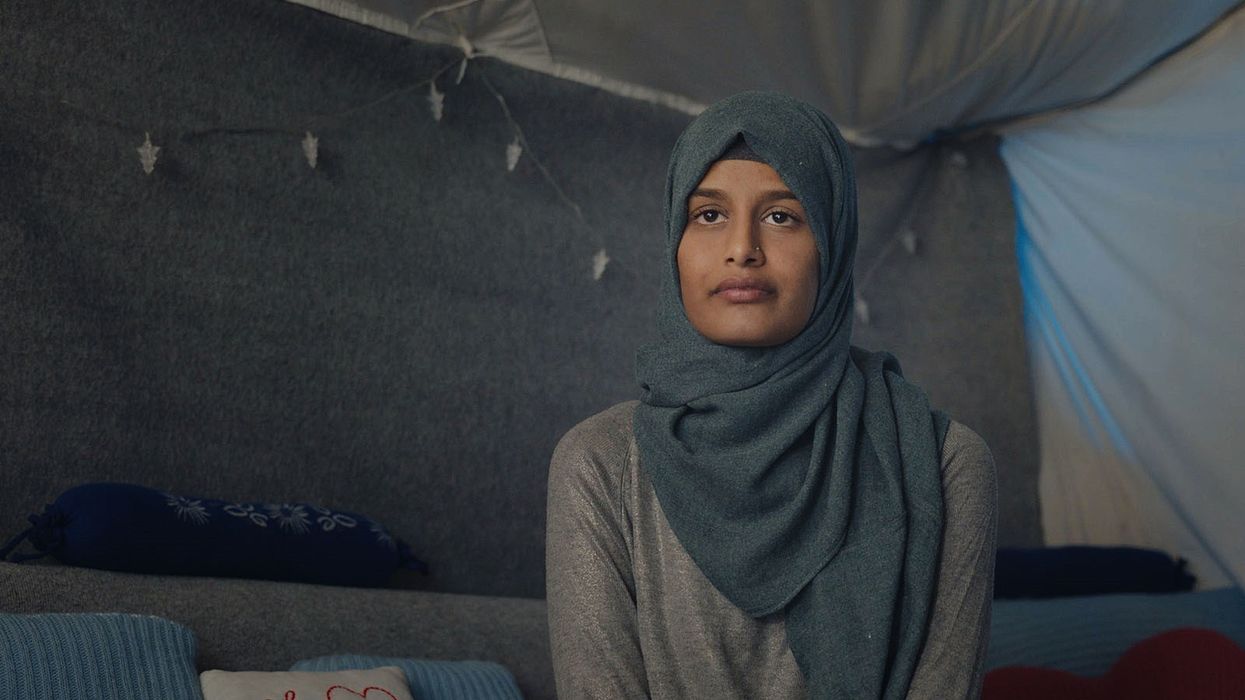
There’s a camp in Syria for women who were previously members of ISIS. Some of these women were teenagers from the United States, England, the EU, and Canada who left their countries after seeing ISIS propaganda videos on social media. Once they got to the caliphate, the "revolution" turned out to be more of a scam.
Now that ISIS has fallen and they can leave, the countries these women are from don’t want them back. An unlikely story emerged from the all-woman team on the ground inside their camp in the story The Return: Life After ISIS.
Director Alba Sotorra Clua and editor Michael Nollet spoke with No Film School during the 2021 SXSW Film Festival to share insight on making a complex, compelling portrait of a world struggling to define reality.
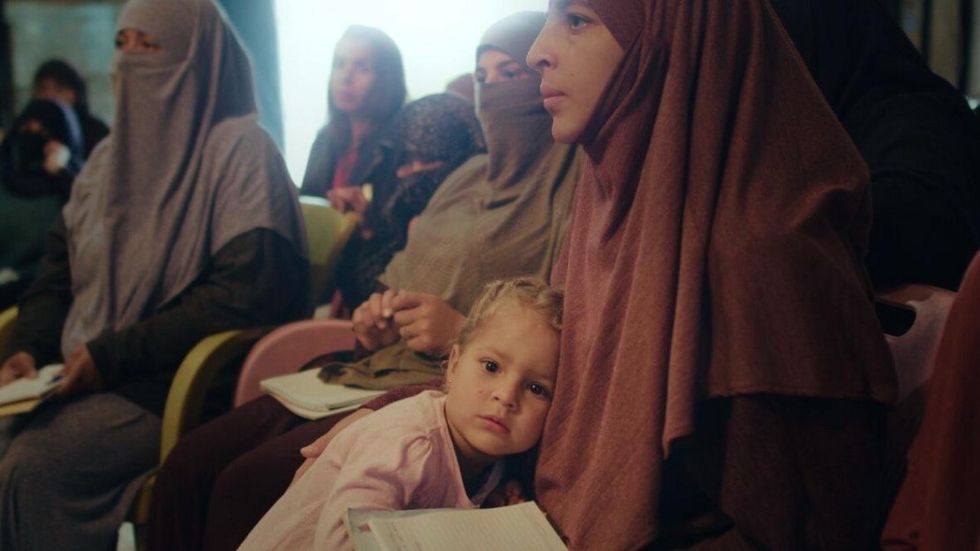
No Film School: How did you first get interested in the subject of former ISIS women stuck in this Syrian camp, having lost their statehood?
Alba Sotorra Clua: Since 2015, I was in the region in northeastern Syria making another film about a Kurdish woman commander fighting ISIS. For three years, I experienced the war against ISIS from Kurdish frontlines. It was very intense. I was dressed in uniform, and I embedded in one of these battalions. During these years of witnessing the war, and I met amazing women. I lost them. I lost a friend during this time, she was a fighter. It triggered a lot of questions.
In the beginning, it was very easy to understand that, "Okay, they are bad, we are good, this is the feminist woman fighting evil.” I saw atrocities that ISIS committed. I saw how, after entering a village, they would leave the bodies there, piled.
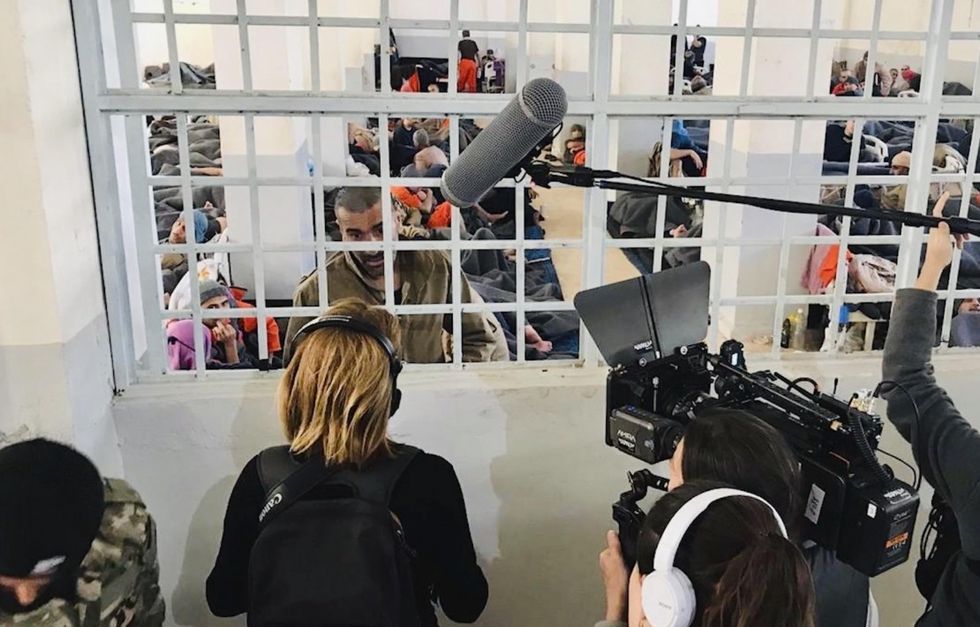
Alba Sotorra Clua: It was really heavy to witness the violence. But then, as the coalition intervened, things shifted, and ISIS became the weak. Then you start to see the pain in the other side, namely the women losing their children. And everything starts to be very complicated. When the war finished, there were thousands of women and children that were in these ISIS territories who had no place to stay. And it was the Kurdish women who had to improvise camps to take care of them. I was shocked. After all the [Kurdish women] have lost, and the pain they have been in, now they have to take care of the ones who lost the war. And I saw that they were trying to create the space in which those women could find shelter.
Not only a physical shelter, but an emotional shelter. I guess they felt the need of opening a dialogue to try to understand them. They had experienced so much violence, they thought, “We cannot keep fighting this with weapons now. We need to find other ways."
I think it's so inspiring. Especially when our governments in the West are just washing their hands and looking at the other side, these Kurdish women are taking responsibility with a war going on around them. So I started to feel the need of doing something about that. And because of the connection with the Kurdish woman, we had the access.
Michael Nollet: It was special because nobody else had that access. The UK press were all told, "No, we don't want you.” [British National] Because Shamima Begum had been burned [by the press] and lost trust with everyone. It was incredible that you'd got in there. You'd not only got in there, but you gained trust.
Alba Sotorra Clua: Journalists were like, "I want to interview you," and they'd be there an hour and try to [get their angle]. We were very different. We had a lot of time. We were filming in a workshop and we said, "Everybody is welcome to the workshop. If you want to be filmed, we will film you. If you don't want, just be in the back, we are not going to film you." Originally, we were there to film the conductor of the workshop and the process that she was going through.
As we were hearing the stories that are very deep, these women were opening up all these emotions for the first time. They had been closed up for years, without allowing themselves to feel, because they were in a situation that was not only physically dangerous but emotionally very restrictive. You were not allowed to think and not to feel. When they started to open up, it was heavy for us to hear them sharing for the first time what they had gone through. And then, it was natural that we also started to get more interested in them and they felt better sharing it with us.
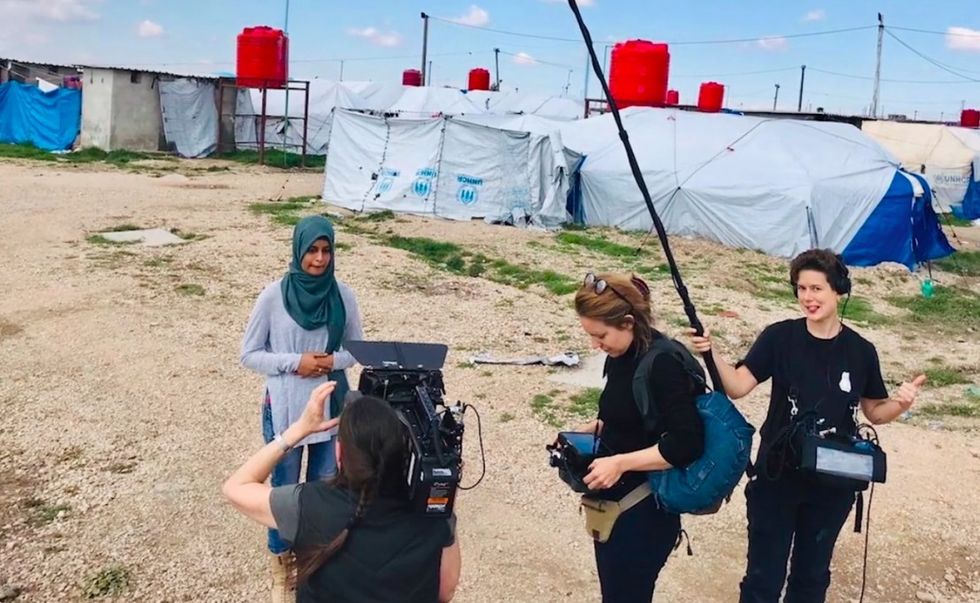
Alba Sotorra Clua: We didn’t want to go unnoticed at all. Lara Vilanova, the DOP, and I [knew] that the women are here to empower themselves. We decided we would shoot them from a lower angle perspective, to empower them. But we were always shooting with wide angles, so we were very close. And they forgot about us, because also we were there for so long.
And then with the sound also, we were quite obvious. We had a big boom pole. But then it was good to be obvious, we were not hidden-ly shooting anything. That was important for us that we don't want them to forget that we're filming. They have to be aware that anything they say in this safe space that we created, it's at the same time being filmed. When you cut, you say, "Hey, remember, your mic is still on. If you want to say something you don't want to be recorded, just put it on silent." It was truly a safe place, where you feel you can say whatever you want.
Michael Nollet: I remember when you came to the edit the last time, you showed me some [footage] where you've all been cooking a meal together. I think there was that aspect of it as well, that when the cameras switched off, there's friendship.
Alba Sotorra Clua: We drank tea, had cookies.
Michael Nollet: It would have been a very different story if you'd had a male camera guy, that would have been impossible, right?
Alba Sotorra Clua: We had to be all female. They could not be on camera without the hijab. They had rules in front of the camera, because of their beliefs. But there many moments off-camera where they didn't have the hijab because we were putting the mics, or we were just relaxing. Among women, there are no rules for dressing. It made it more relaxed. With a male in the group, it maybe would be possible, but more complicated.
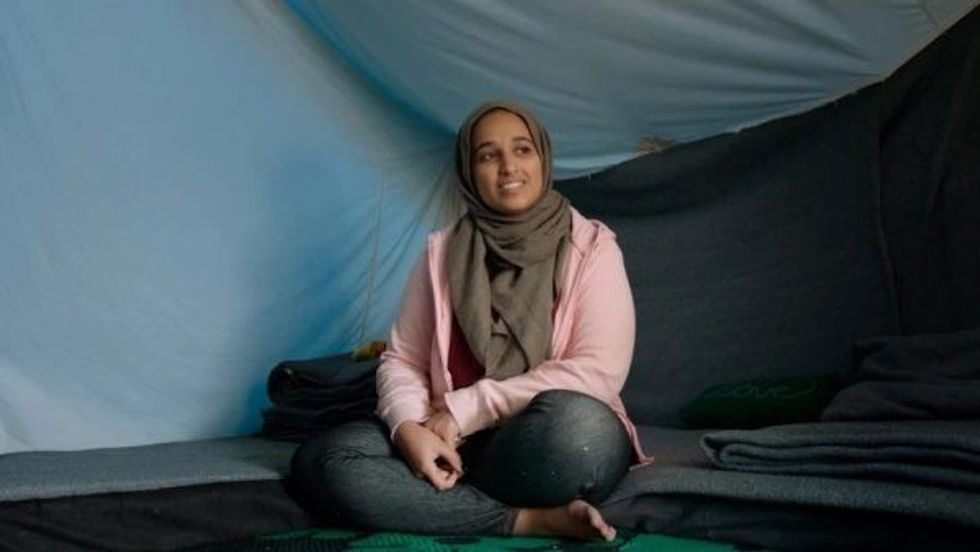
Alba Sotorra Clua: A big part of our day, our reality, is watching a screen—so that's our reality. With our film, we aim to switch the narrative on this topic that has largely been built through media. A lot of people in the UK, the US, Canada, and European countries have very well-formed opinions on the topic from a place the way they have never been, from women who they have never met. It's an amazing power.
And it's constantly misused. Especially when in social media, you have the condition, I don't know how you say it in English, where you like one video, then you are recommended 20 similar videos the same, and then more and more. And every time, it’s more radical and more radical, because they drive you there. It's made so you can get sucked more into that content. And I think we should reflect on that deeply, and reconsider the way social networks work. I think the most important to be healthy, is to be exposed to many different points of view.
I always say when I make a film, I wish there were 100 more people making a film on the same topic, because then people will be well-informed. It will have an opinion based on many opinions. If they only see things from one point of view, what would your opinion be? To have a healthy society, you need to be exposed to different realities.
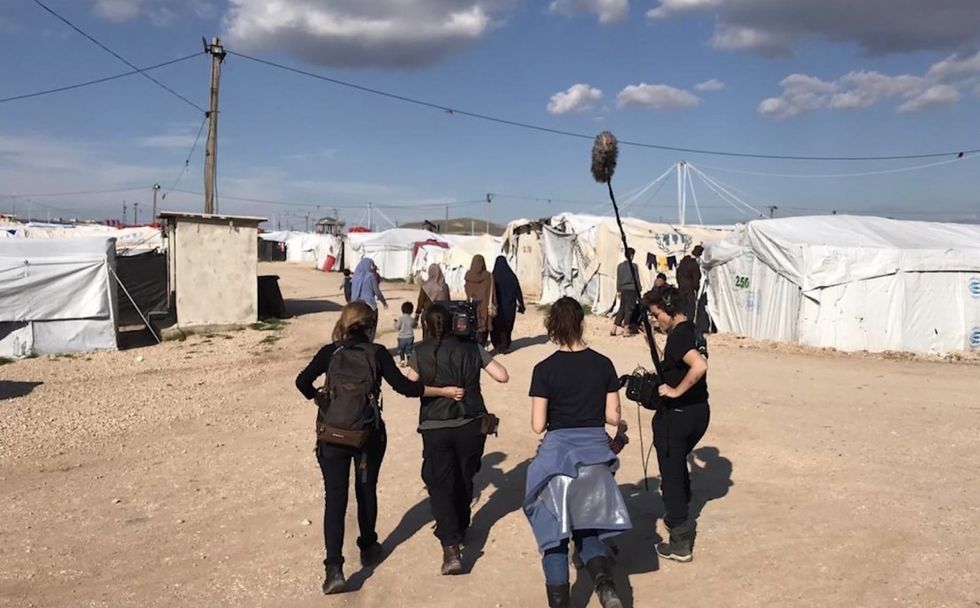
Michael Nollet: I think that the challenge I found was that the audience comes with so much bias towards this subject. It's such a raw subject. So for me, it was a matter of trying to open people's minds. So we’re embracing these extreme views of ISIS. You're saying, "Yeah, they're all fucked, terrible." Let's not shy away from that. And let's also not paint this picture of, "They're all poor girls." We need to make sure that people feel angry. Only then you can sense that we’re setting up a really deep question. What happens to these kids?
Alba Sotorra Clua: The biggest challenge were the emotional challenges. Of course, I can tell you a 100 stories that we lived through, like, we get a message, "Turkey's attacking tomorrow." But we have to shoot tomorrow! One time, the Turkish army entered the city where we were shooting, and there's like, "Boom," a bomb. We had to flee.
The problem was not that we had to flee, because we can come back next month and shoot. The problem was emotional, because fleeing meant leaving half of the crew, the Kurdish crew, who were staying to fight against an army that was coming with all the strength, and saying, “Goodbye. Don't worry. We're going to be safe." These kind of things are heavy emotional. It was heavy for everybody.
The crew from Barcelona who came are not the same after this journey. They connected in a very strong way. Some things in their life changed after that. And of course, my life. It's complicated because the subject is in an intense reality. It's an intense world. And everybody there has an intense life. As a documentary filmmaker, making films means that for a period of time, you become part of another reality, and you become part of someone else’s life. When that life is heavy, you are not filming as a piece of a stone.
For more, read our ongoing coverage of the 2021 SXSW Festival.












